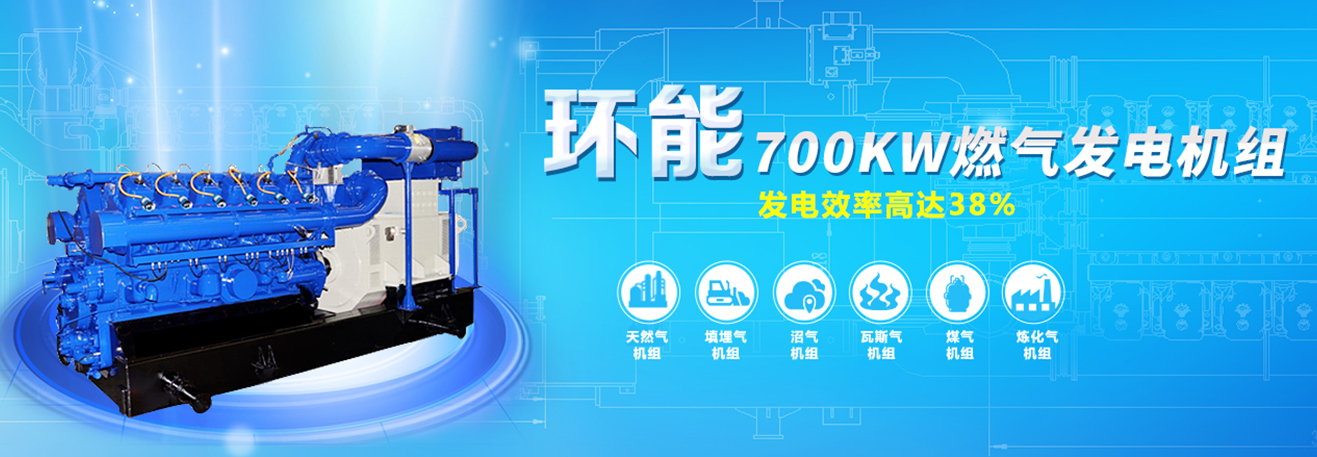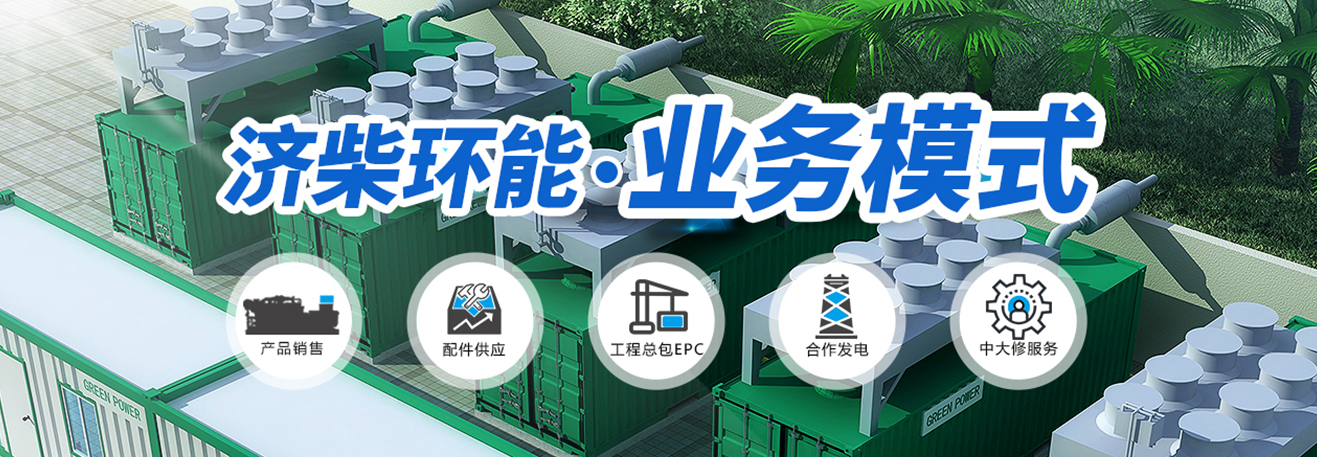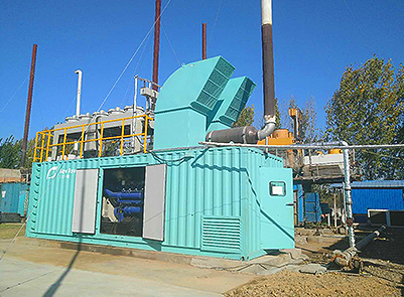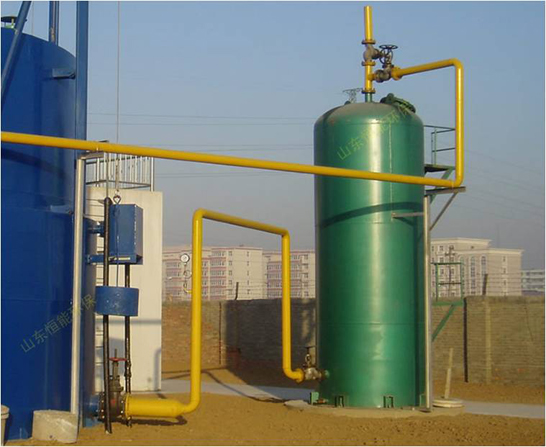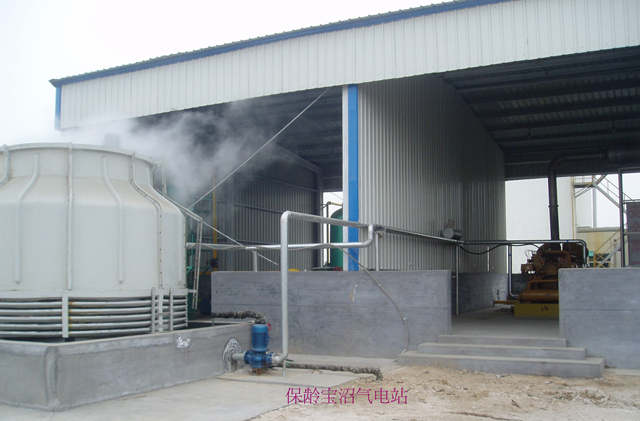燃?xì)獍l(fā)電機組的多種運行模式
燃?xì)獍l(fā)電機組的應(yīng)用比較廣泛,不同的應(yīng)用場景下發(fā)電機組運行模式也有所區(qū)別。燃?xì)獍l(fā)電機組主要用于驅(qū)動壓縮機,屬于純粹的孤島運行。在天然氣熱電冷三聯(lián)供的應(yīng)用方面,燃?xì)獍l(fā)電機組平時并網(wǎng)運行,一旦電網(wǎng)故障則轉(zhuǎn)換為孤島運行,為關(guān)鍵設(shè)備持續(xù)提供電力。
Gas generator sets are widely used, and their operation modes are different under different application scenarios. The gas generator set is mainly used to drive the compressor and belongs to pure island operation. In the application of natural gas cogeneration of heat, power and cooling, the gas generator unit is normally connected to the grid for operation. In case of grid failure, it will be converted to island operation to provide continuous power for key equipment.
并網(wǎng)運行
Grid-connected operation
并網(wǎng)運行定義:分布式能源系統(tǒng)發(fā)電機組與公共電網(wǎng)在用戶端并列運行,并向公共電網(wǎng)輸送電能的方式。
Grid-connected operation definition: the way that distributed energy system generator units and public power grid operate in parallel at the user end and transmit electric energy to the public power grid.
并網(wǎng)運行是為常見的運行模式,對于發(fā)電機組而言也是為簡單的運行模式。在并網(wǎng)運行模式下,發(fā)電機組需要通過電網(wǎng)狀態(tài)監(jiān)測裝置,實時監(jiān)測電網(wǎng)狀態(tài)。一旦電網(wǎng)發(fā)生故障,例如突然失電,監(jiān)測裝置迅速給出信號,發(fā)電機組控制系統(tǒng)立即斷開出口斷路器,切斷與電網(wǎng)的聯(lián)系。在這種模式下,發(fā)電機組與電網(wǎng)斷開后即進(jìn)入停機程序。
Grid-connected operation is a common operation mode and also a simple operation mode for generating units. In the grid-connected operation mode, the generator unit needs to monitor the power grid status in real time through the power grid status monitoring device. Once the power grid breaks down, such as sudden power loss, the monitoring device will give a signal quickly, and the generator set control system will immediately disconnect the outlet circuit breaker and cut off the connection with the power grid. In this mode, the generator unit will enter the shutdown procedure after it is disconnected from the power grid.
并網(wǎng)運行時,發(fā)電機組控制系統(tǒng)需要調(diào)節(jié)自身的參數(shù),使其與電網(wǎng)參數(shù)一致方可并網(wǎng),這個過程稱之為同步或者同期(synchronization)。具體來說,需要同步的參數(shù)是,相同的電壓、頻率、相序和相位。在發(fā)動機控制系統(tǒng)里面,可以預(yù)先設(shè)置允許的誤差范圍。
During grid-connected operation, the generator set control system needs to adjust its own parameters to make it consistent with the grid parameters before grid-connected. This process is called synchronization. Specifically, the parameters to be synchronized are the same voltage, frequency, phase sequence and phase. In the engine control system, the allowable error range can be preset.
一旦達(dá)到允許同步的條件,控制系統(tǒng)自動發(fā)出合閘指令,使發(fā)電機組出口斷路器合閘。如果運行在手動模式,操作員也可以手動進(jìn)行同步操作。
Once the conditions for synchronization are met, the control system will automatically send a closing command to close the generator set outlet circuit breaker. If the operation is in manual mode, the operator can also perform synchronous operation manually.
在并網(wǎng)運行模式下,發(fā)電機組控制系統(tǒng)運行方式為“功率模式”。機組按照滿功率或者預(yù)先設(shè)置的功率值輸出,但是從機組的運行效率、維護(hù)保養(yǎng)和排放限值等因素考慮,一般要求長期持續(xù)運行的功率百分比不低于50%。
In the grid-connected operation mode, the operation mode of the generator unit control system is "power mode". The unit is output according to the full power or preset power value, but considering the operation efficiency, maintenance and emission limit of the unit, it is generally required that the percentage of power for long-term continuous operation shall not be less than 50%.
孤島運行(孤網(wǎng)運行)
Island operation
孤島運行定義:分布式能源系統(tǒng)發(fā)電機組與公共大電網(wǎng)完全脫開獨立運行的方式。
Definition of isolated island operation: the mode of independent operation of the distributed energy system generator set completely separated from the public power grid.
在孤島運行模式下,燃?xì)獍l(fā)電機組沒有電網(wǎng)的支撐,完全由自身提供負(fù)荷所需電能。發(fā)電機組的帶載性能決定了所能承載的負(fù)荷大小以及波動。ISO8528-5規(guī)定了G1-G4四個類別,分別對應(yīng)不同的負(fù)荷種類和級別。發(fā)電機組廠商根據(jù)ISO8528-5的定義,給出了機組在相應(yīng)的等級下大能承受的負(fù)荷情況。
In the isolated island operation mode, the gas generator unit is not supported by the power grid, and it completely provides the power required by the load by itself. The load capacity of the generator set determines the size and fluctuation of the load it can carry. ISO8528-5 specifies four categories of G1-G4, which correspond to different load types and levels. According to the definition of ISO8528-5, the generator set manufacturer gives the load that the unit can bear at the corresponding level.
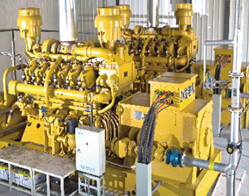

在孤島運行模式下,發(fā)電機組控制系統(tǒng)運行方式為“速度模式”。顧名思義,這個時候發(fā)電機組控制系統(tǒng)主要是由速度調(diào)節(jié)器起著核心作用。負(fù)荷在波動時,發(fā)電機組管理系統(tǒng)迅速調(diào)節(jié)燃?xì)夂突旌蠚鈪?shù)以應(yīng)對出力變化。需要注意的是,負(fù)荷的波動不能超過發(fā)電機組的限定值。對于電機類負(fù)荷,需要注意其直接啟動電流為額定值的若干倍。通常,對于大電機應(yīng)該通過軟啟動器、星三角或者變頻器進(jìn)行啟動。
In the island operation mode, the operation mode of the generator set control system is "speed mode". As the name implies, at this time, the speed regulator plays a key role in the generator set control system. When the load fluctuates, the generator unit management system quickly adjusts the gas and mixture parameters to cope with the output change. It should be noted that the load fluctuation cannot exceed the limit value of the generator set. For motor load, it is necessary to note that its direct starting current is several times of the rated value. Generally, large motors should be started by soft starter, star delta or frequency converter.
當(dāng)同一段母線下有多臺發(fā)電機組并列運行時,需要進(jìn)行負(fù)荷分配,包括有功功率的分配和無功功率分配。有功功率分配可以通過廠家提供的負(fù)荷分配線,或者類似的專用功能模塊實現(xiàn)。無功功率分配則通過給多臺發(fā)電機組的電壓調(diào)節(jié)器AVR設(shè)置相同的Droop參數(shù)實現(xiàn)。
When multiple generator units operate in parallel under the same section of bus, load distribution, including active power distribution and reactive power distribution, is required. Active power distribution can be realized through the load distribution line provided by the manufacturer or similar special function modules. Reactive power distribution is realized by setting the same Droop parameters for the voltage regulator AVR of multiple generator units.
并網(wǎng)不上網(wǎng)
Grid-connected and non-grid-connected
并網(wǎng)不上網(wǎng)定義:分布式能源系統(tǒng)發(fā)電機組與公共電網(wǎng)在用戶端并列運行,不向公共電網(wǎng)輸送電能的方式。
Definition of grid-connected and non-grid-connected: the distributed energy system generator units and the public power grid operate in parallel at the user end and do not transmit electricity to the public power grid.
由于各種原因,許多天然氣分布式能源項目無法向電網(wǎng)輸出電力,或者因經(jīng)濟性不佳而有意不向電網(wǎng)輸出電力,這種即為并網(wǎng)不上網(wǎng)模式。但是發(fā)電機組仍然與電網(wǎng)連接,當(dāng)發(fā)電機組功率比負(fù)荷小時,剩余電能由電網(wǎng)補充。在并網(wǎng)不上網(wǎng)模式下,一般由發(fā)電機組充當(dāng)主用電源,電網(wǎng)作為備用電源。
Due to various reasons, many natural gas distributed energy projects are unable to output power to the grid, or intentionally do not output power to the grid due to poor economic performance. This is the grid-connected and non-grid-connected mode. However, the generator unit is still connected to the grid. When the power ratio of the generator unit is small, the remaining electric energy is supplemented by the grid. In the grid-connected and non-grid-connected mode, the generator set is generally used as the main power supply, and the grid is used as the standby power supply.
并網(wǎng)不上網(wǎng)模式是根據(jù)工廠的用電負(fù)荷來自動控制機組輸出功率。通常需要發(fā)電機組控制系統(tǒng)實時監(jiān)測并網(wǎng)開關(guān)處的功率方向,防止出現(xiàn)“逆功率”。具體來說,當(dāng)發(fā)電機組功率大于負(fù)荷時,控制系統(tǒng)發(fā)出指令,降低發(fā)電機組的輸出功率。當(dāng)一段母線上有多臺機組時,需要同時調(diào)節(jié)所有機組的功率。
The grid-connected and non-grid-connected mode is to automatically control the output power of the unit according to the power load of the plant. Usually, the generator set control system is required to monitor the power direction at the grid-connected switch in real time to prevent "reverse power". Specifically, when the power of the generator set is greater than the load, the control system will send instructions to reduce the output power of the generator set. When there are multiple units on a section of bus, it is necessary to adjust the power of all units at the same time.
并網(wǎng)和孤島自動切換
Grid connection and island automatic switching
有些情況下,機組需要在并網(wǎng)和孤島模式間進(jìn)行切換。當(dāng)電網(wǎng)正常時,機組運行在并網(wǎng)模式。網(wǎng)電故障發(fā)生時,機組自動切換到孤島模式,機組保持持續(xù)運行不停機。這時需要注意的是,如果負(fù)荷高于發(fā)電機組的輸出功率,就需要切斷部分負(fù)荷。機組控制系統(tǒng)能夠根據(jù)負(fù)荷大小自動發(fā)出指令,在負(fù)荷即將超過額定功率時立即切斷部分負(fù)荷。在設(shè),需要綜合考慮負(fù)荷的優(yōu)先順序,把非關(guān)鍵負(fù)荷與關(guān)鍵負(fù)荷區(qū)別處理。
In some cases, the unit needs to switch between grid connection and island mode. When the grid is normal, the unit operates in grid connection mode. In case of grid power failure, the unit will automatically switch to island mode, and the unit will maintain continuous operation without shutdown. At this time, it should be noted that if the load is higher than the output power of the generator unit, it is necessary to cut off part of the load. The unit control system can automatically send instructions according to the load size, and cut off part of the load immediately when the load is about to exceed the rated power. In the design, the priority of load should be considered comprehensively, and non-critical load and critical load should be treated differently.
在發(fā)電機組控制系統(tǒng)檢測到電網(wǎng)恢復(fù)正常以后,能夠自動給機組發(fā)出指令,開始與電網(wǎng)同步的過程,并切換到并網(wǎng)模式。
After the generator unit control system detects that the power grid is restored to normal, it can automatically send instructions to the unit, start the process of synchronization with the power grid, and switch to the grid connection mode.
燃?xì)獍l(fā)電機組的控制模式由用戶的需求決定,在具體的控制系統(tǒng)功能的實現(xiàn)上,廠家根據(jù)機組數(shù)量,電氣連接方式,以及運行方式等配置不同的功能模塊或者控制柜。如有必要,現(xiàn)有的機組也可以進(jìn)行改造,增減相應(yīng)的配置。更多相關(guān)內(nèi)容就來我們網(wǎng)站http://www.vw95.cn咨詢了解!
The control mode of the gas generator unit is determined by the user's needs. In the realization of the specific control system functions, the manufacturer configures different functional modules or control cabinets according to the number of units, electrical connection mode, and operation mode. If necessary, the existing units can also be modified to increase or decrease the corresponding configuration. Come to our website for more relevant content http://www.vw95.cn Consult and understand!
 在線咨詢
在線咨詢 官方二維碼
官方二維碼




 當(dāng)前位置:
當(dāng)前位置: 2023.02.21
2023.02.21
